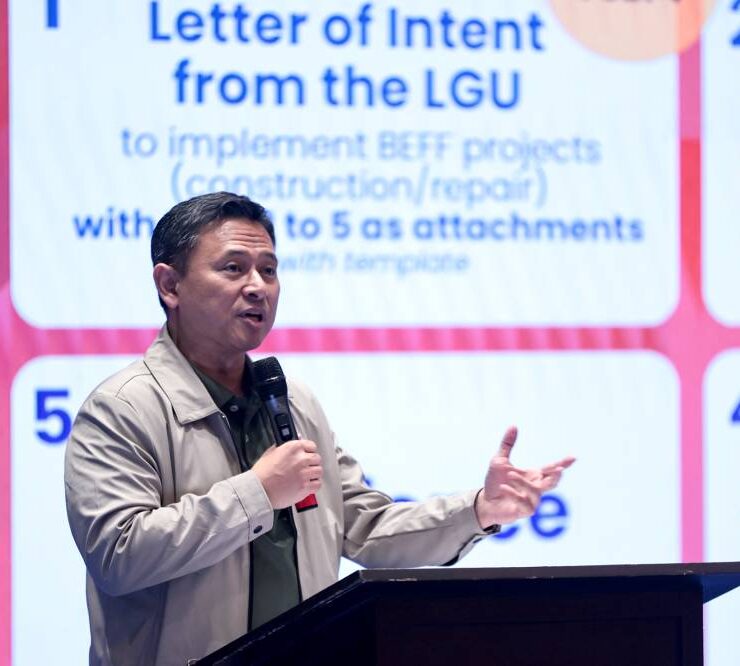Stonewalling on SALNs

Old habits die hard, and pernicious habits die harder. Just witness the frantic Palace pushback against the wave of public sentiment demanding the release of statement of assets, liabilities, and net worth (SALNs) of public officials.
As years of secrecy and subterfuge are being peeled back to restore accountability to public office in light of the staggering plunder and corruption that have been uncovered in infrastructure projects, Executive Secretary Lucas Bersamin—the very alter ego of the President—has chosen this very moment to adopt a reactionary stance: stonewall the march to transparency by directing that the SALNs of President Ferdinand Marcos Jr. and members of his Cabinet be released only to “proper authorities,” following guidelines set by the Office of the Ombudsman.
Bersamin’s reason? “We must all take note that the SALN contains many details that might compromise the security, safety of the public officials concerned. So our existing rules require any person who wants to access the SALN of any official should give a good reason,” he said.
Well, is there any higher, more compelling reason than the Constitution itself?
Ethical standards
Article XI, Section 17 of the Charter decrees that “A public officer or employee shall, upon assumption of office and as often thereafter as may be required by law, submit a declaration under oath of his assets, liabilities, and net worth.”
The second part says: “In the case of the President, the Vice President, the Members of the Cabinet, the Congress, the Supreme Court, the constitutional commissions and other constitutional offices, and officers of the armed forces with general or flag rank, the declaration shall be disclosed to the public in the manner provided by law.”
That “provided by law” requirement has also been met. Republic Act No. 6713, enacted in 1989 to establish a code of conduct and ethical standards for public officials and employees, affirmed the public’s right to access the SALNs of “all public officials and employees.” Citizens may inspect such documents during regular hours and request copies of the SALNs for a “reasonable fee.” The documents are to be kept available for public access for 10 years “unless needed in an ongoing investigation.”
The only restrictions? The SALNs cannot be used “for purposes contrary to morals or public policy,” or for commercial use, except by the news media “for dissemination to the general public.”
Paramount requirements
The law is clear: transparency and accountability are paramount requirements for public office. The SALNs are public records that must be open to all citizens. But the dispiriting reality in the last decades since has equally been clear—that politicians will try to hem and haw, dodge and duck, grasp for any means fair or foul to evade being open and honest to the public.
This retrograde, backward instinct was most enabled during the Duterte years, when contempt for basic accountability became a defining trait. From 2018 onward, then President Rodrigo Duterte’s SALN was not seen by anyone other than the Office of the Ombudsman, a post occupied by his appointee, Samuel Martires. Rather than upholding the mandate of his office to hold government officials to account via, among other things, protecting the public’s right to information and access to government records, Martires essentially chose to partake of Duterte’s secretive, furtive brand of governance by issuing a directive in 2020 that all but kneecapped the public’s right to see the SALNs of the president and other officials.
That deplorable state of affairs seemed to have ended, finally, with the assumption to office of new Ombudsman Jesus Crispin Remulla, among whose first official acts was to dismantle the Martires-era system of stealth by reopening public access to SALNs.
Reformist push
Remulla’s reformist push, coupled with the citizenry’s rage at the trillions of pesos lost to corrupt public works, has had an immediate salutary effect: All 24 senators have now released their SALNs, joining the House Speaker and other lawmakers in heeding the public’s call.
In appointing Remulla as Ombudsman, the Marcos administration vowed that “there will be no sacred cows, no exemptions, and no excuses. Public office is a public trust, and those who betray it will be held accountable.”
Why then is Bersamin, presumably speaking for the President, now gutting that commitment by demanding exemptions for Palace occupants, insisting that their SALNs be released only to “proper authorities”? And who are these “proper authorities” in the first place?
In light of the magnitude of thievery by government officials that has come to light, any excuse to once more delay, or throw a monkey wrench into, the public’s demands for politicians to level up with the citizenry is sheer, unacceptable betrayal. The people are simply fed up with unending impunity. If this country’s leaders have nothing to hide, what in the devil are they so afraid of showing?





















